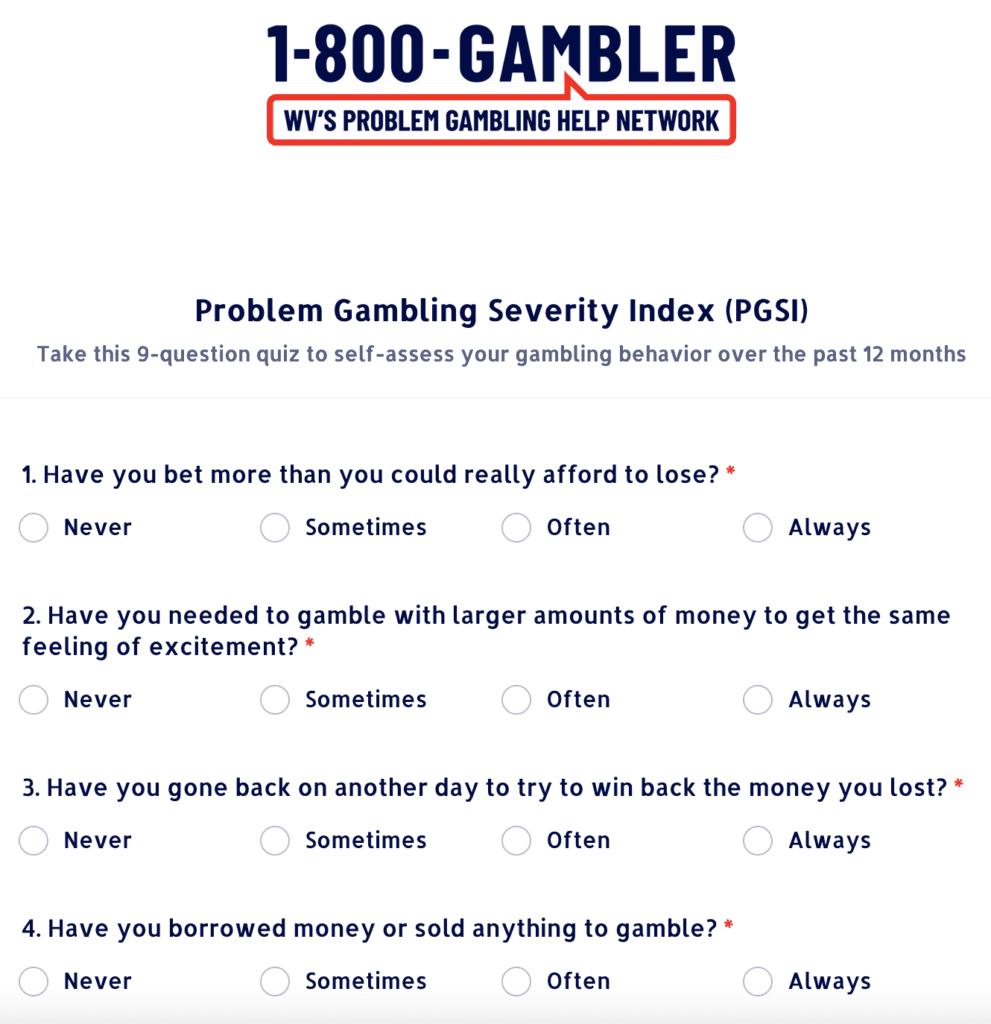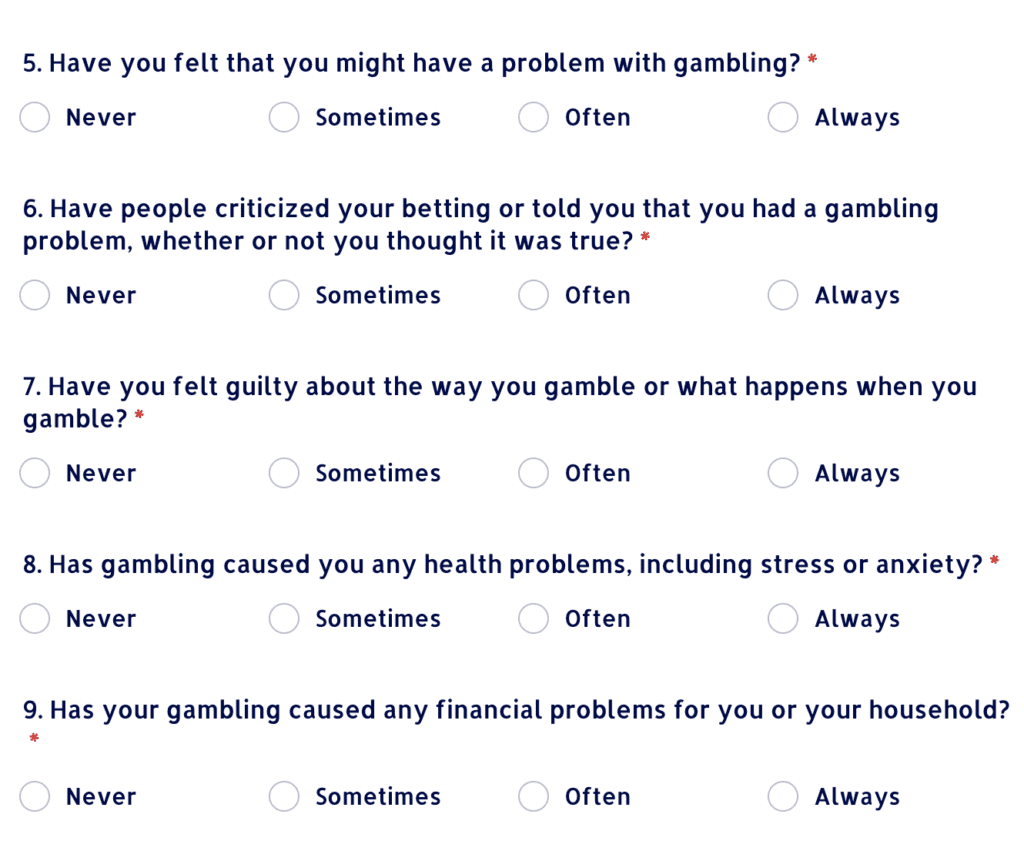Search Posts
Recent Posts
- Vinny Paz to be inducted TODAY into the International Boxing Hall of Fame – CES Boxing June 7, 2025
- In the News… quick recap of the week’s news (6.7.25) June 7, 2025
- Burn with Kearns: Strong without the spend: How scraps became strength tools – Kevin Kearns June 7, 2025
- Rhode Island Weather for June 7, 2025 – Jack Donnelly June 7, 2025
- How to advocate for threatened properties: The Heritage Alliance of Pawtucket June 7, 2025
Categories
Subscribe!
Thanks for subscribing! Please check your email for further instructions.

Problem Gambling: iGaming will be the high roller in addiction
When you hear “gambling,” what comes to mind? A gas station lotto ticket? A casino? Someone betting on horses? How old are the people in those scenarios?
Do you hear “gambling” and think of a 14-year-old placing bets on their favorite esports team? What about a 10 year old opening “loot crates” in a video game? The point is, you may be gambling even if you don’t think of it that way. And where there’s gambling, there’s risk. And what’s the greatest risk? Developing a gambling problem, especially young, is a set-up for a lifetime of struggles.
The most addictive type of gambling has traditionally been slot machines. However, internet gambling, iGaming, is now recognized, however early on, to be the most addictive type of gambling. Easy access, anonymity, instant gratification and variable rewards create an immersive interface often leading to spending more than with physical gambling.
“The taxable revenue from virtual casinos could dwarf that of the sports wagering markets,” said Scott Manford CEO of Wizard Slots in the UK, speaking about the trend happening in America.
In Rhode Island, as elsewhere iGaming operators are often required to contribute to problem gambling programs and initiatives as part of their regulatory obligations. This follows similar requirements set up by the RI Lot for their lottery buyers. But no doubt the amount allocated to help problem gamblers is a drop in the profit margins of the companies who are the real winners behind the digital addiction.
Licensing Fees and Taxes: iGaming operators are typically subject to licensing fees and taxes, a portion of which may be allocated to fund problem gambling programs. These fees and taxes help support resources such as helplines, counseling services, public awareness campaigns, and treatment centers aimed at addressing problem gambling.
Responsible Gambling Contributions: Some regulatory frameworks mandate that iGaming operators allocate a specific percentage of their revenue or profits towards responsible gambling initiatives. These contributions may fund research, education, prevention, and treatment programs designed to mitigate the harms associated with problem gambling.
There are many local and national resources to get help with gambling – it might just start by making an anonymous phone call – here is one resource: If you think you or someone you know might have a gambling problem, call 1-800-GAMBLER anytime. It’s fast, free, and confidential.
Types of Gambling you may not even realize are part of activities that lead to addiction for some:
ESports
Watching players battle against each other to win your favorite video game can be fun, but if you find yourself using real (or fake) money to bet on the outcome, you may find yourself not knowing where all your money went.
Online Gambling
It’s easy to get sucked into spending too much time online, sometimes at the expense of your work, school, family or social life. When gambling is involved, it’s even trickier. Online casinos and games, whether you’re using real or fake money, can lure you into thinking you’re just a click away from a big jackpot.
Sports Betting
Many people think that because they are good with sports, or with numbers, or know their stats and teams, they can easily make a lot of money betting on sports. The truth is, even if you have occasional wins, odds are you’ll eventually lose more than you ever won.
Fantasy Leagues
Your dream team can quickly turn into a nightmare for your wallet if you think this is a good way to make a buck. The big companies that run these sites count on players to overestimate their luck and skill so they can cash in on your hopes.
What do we know about problem gambling and iGaming?
Problem gambling with iGaming, or online gambling, is a significant concern given the ease of access and potential for addictive behavior that online platforms can foster. Here’s a breakdown of the issue and potential solutions:
Understanding the Problem:
- Accessibility: iGaming platforms are easily accessible from various devices, including smartphones, tablets, and computers, allowing for constant and convenient access to gambling activities.
- Lack of Regulation: Some regions may have inadequate regulations or enforcement mechanisms to address problem gambling effectively.
- Anonymity and Privacy: Online gambling can be pursued anonymously, making it easier for individuals to hide their behavior from loved ones and seek refuge in the virtual world.
- Financial Implications: Unlike traditional casinos where players use physical currency, iGaming often involves digital transactions, which can lead to significant financial losses quickly.
Solutions and Strategies:
- Regulatory Measures:
- Strengthen regulations and enforcement efforts to ensure responsible gambling practices are followed by iGaming operators.
- Implement measures such as mandatory self-exclusion programs and strict age verification processes.
- Education and Awareness:
- Increase public awareness about the risks associated with online gambling through campaigns and educational programs.
- Provide resources and support for individuals and families affected by problem gambling, including helplines and counseling services.
- Responsible Gambling Tools:
- iGaming platforms can incorporate responsible gambling tools such as deposit limits, time limits, and self-exclusion options to empower players to manage their behavior effectively.
- Use algorithms and artificial intelligence to detect patterns of risky behavior and intervene proactively.
- Collaboration:
- Collaboration between government agencies, regulators, industry stakeholders, and advocacy groups is crucial to developing comprehensive strategies to address problem gambling.
- Encourage cooperation between iGaming operators to share best practices and insights on responsible gambling initiatives.
- Research and Data Analysis:
- Invest in research to better understand the factors contributing to problem gambling in the context of iGaming.
- Utilize data analytics to identify high-risk individuals and tailor interventions accordingly.
- Financial Protections:
- Implement measures to safeguard players’ financial transactions and ensure transparency in terms of fees, withdrawals, and bonuses.
- Provide resources for financial counseling and debt management for individuals experiencing financial distress due to gambling.
- Continuous Evaluation and Adaptation:
- Regularly evaluate the effectiveness of existing strategies and adapt approaches based on emerging trends and insights.
- Foster a culture of responsible gambling within the iGaming industry through continuous improvement and innovation.
Addressing problem gambling with iGaming requires a multifaceted approach involving regulatory, educational, technological, and collaborative efforts to mitigate risks and promote responsible gambling practices.
One quick way to see if gambling may becoming a problem for you is to take an online self-assessment – this one is provided by 1-800-GAMBLER. Here are the questions – and here is the link to the LIVE SITE to take the quiz and get some fast answers: Just click on: TAKE QUIZ HERE!


Call 1-800-GAMBLER, text 800GAM, or visit www.1800gamblerchat.org. Help is available 24/7 – it is free and confidential.
There are support groups available in every state, including Rhode Island. They operate much like AA, are free, convenient, with people of all ages, and are one of the known ways to get effective help.
___
